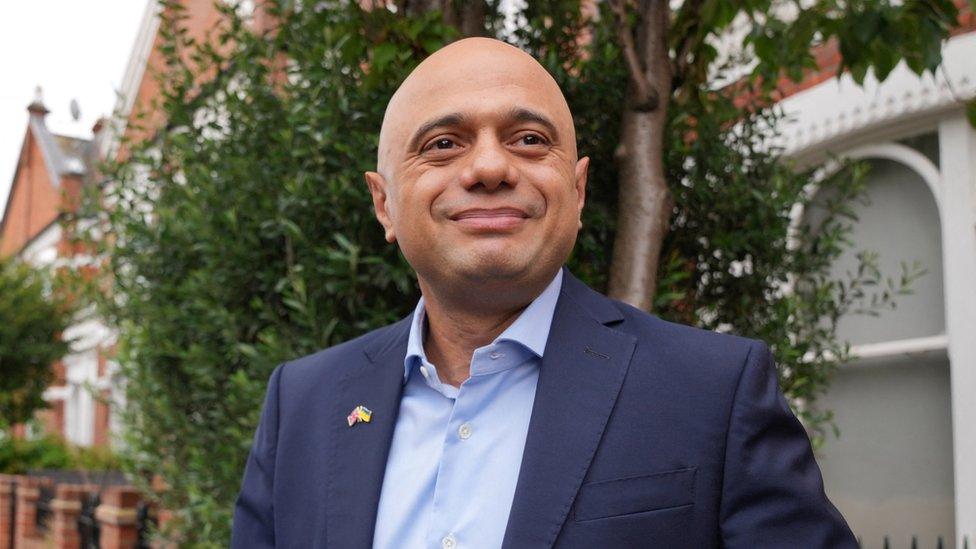Sajid Javid to stand down as MP at next election
- Published

Former chancellor and health secretary Sajid Javid has said he will stand down as an MP at the next general election.
Mr Javid, MP for the Worcestershire seat of Bromsgrove, said he had made the decision "after much reflection".
He said his decision had been accelerated by a Tory Party review, which is asking sitting MPs to indicate now whether they want to stand again.
Eleven other sitting Tory MPs are set to quit at the next election, expected in 2024.
Mr Javid previously served as home secretary under former Prime Minister Theresa May, and in 2019 was promoted to chancellor by Boris Johnson.
But he dramatically quit as chancellor after six months in the role, following tensions with Mr Johnson's then-advisor Dominic Cummings.
In a reference to their shared love of the Star Wars film franchise, Prime Minister Rishi Sunak paid tribute to Mr Javid by tweeting "May the Force be with you, Saj".
The Conservative Party has asked its MPs to indicate by Monday if they want to run again, to aid the party's preparations ahead of the next election.
Among those to announce they are quitting Parliament in recent days are Dehenna Davison, a levelling up minister, backbenchers William Wragg and Charles Walker, and former work and pensions secretary Chloe Smith.
Eleven current Labour MPs have also said they will be standing down, but they are mostly older - with five over the age of seventy.
Mr Johnson, as well as former business secretary Jacob Rees-Mogg, are among Tory MPs to have made public their intention to stand again.
Mr Javid, who turns 53 on Monday, has a large 23,000 majority in his Bromsgrove constituency. Unlike some MPs, the boundaries of his seat are not due to be changed under a scheduled review of the electoral map.
Confirming his decision in a letter to the area's Conservative association, he did not give a reason why he had decided to stand down.
However, in a signal that he will continue to operate within the political world, he said quitting as an MP would not "mark the end of my Parliamentary activity".

Sajid Javid and Rishi Sunak attended a Star Wars film premiere together in late 2019
Since entering Parliament in 2010, Mr Javid has held ministerial or cabinet-level roles at six different government departments.
He was the first cabinet minister to announce he was quitting Boris Johnson's government in July, minutes before Prime Minister Rishi Sunak did the same.
Their departures - which both have denied co-ordinating - led to a slew of further resignations that eventually led to Mr Johnson's departure.
Mr Javid then put himself forward to succeed Mr Johnson at this summer's Conservative leadership contest, but pulled out of the race ahead of the first round of voting by Tory MPs.
He threw his weight behind eventual winner Liz Truss, attacking her leadership rival Mr Sunak for saying tax cuts would have to wait until the economy grows.
He then backed Mr Sunak in his successful bid to replace Ms Truss in October, but he was not given a ministerial position.
Mr Javid had stood to be Conservative leader once before in 2019 - when he was knocked out at the final round of Tory MPs' voting.
Since leaving government this summer, has given a number of lucrative speeches to banks - a sector in which he had a career before entering politics.
According to the latest register of MPs' interests, he is set to receive £30,000 for a speech to HSBC executives in September, and £36,000 for a speech to clients of Deutsche Bank in October.
According to the Financial Times, external, he has held talks with a number of banks and investment groups about his career after politics.